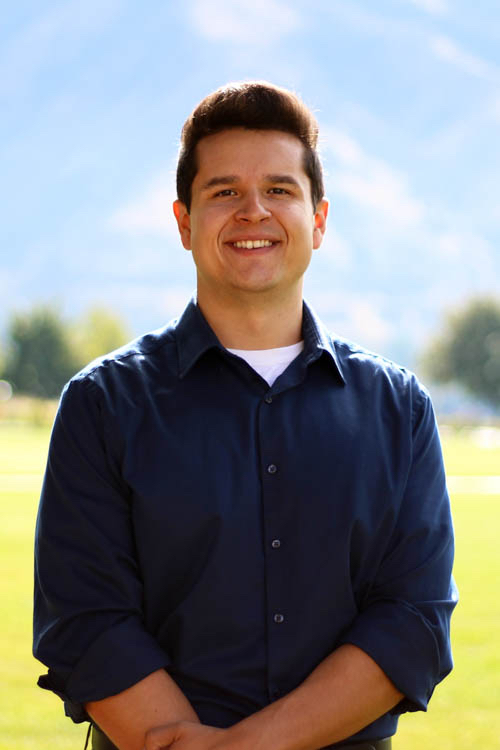CAMARILLO — Black men in Washington D.C. tend to die 17 years sooner than white men according to a nationally-recognized study conducted by 2015 CSU Channel Islands (CSUCI) Sociology graduate Max Roberts, who is now pursuing a Ph.D. at Utah State University (USU).
Overall, the gap in life expectancy between Black and white Americans has been shrinking in the U.S., but Roberts pointed out that those statistics conceal ongoing disparities, with the most alarming results coming out of Washington D.C., where, in 2016, the longevity gap between Black and white men was more than 400% greater than the national gap, with white men living over 17 more years than Black men.
Roberts’ groundbreaking research has been cited in publications such as the Washington Post, and New York Magazine as well as Scientific Reports and the largest public access health journal in the West, BMC Public Health. The national media attention raised Roberts’ hopes that the problem can be studied more and remedied, especially in the nation’s capital, where the problem is especially pronounced.
“I was fortunate the article was picked up by the Washington Post,” Roberts said. “City council members generally don’t read research articles every day, so if you can bridge the gap between the academic studies and policy, we have a solid foundation to target interventions.”
Sociology was a natural fit for Roberts, 29, as what he was studying at CSUCI reflected what he had seen every day while growing up in a small midtown Ventura apartment with his parents.
“It just clicked. The things I was learning about were observations I was already making,” Roberts said. “Such as why do we have so much homelessness? Why do people struggle to pay bills? I come from a household where neither parent went to college and we struggled as to whether we could pay rent. Whereas across the road, people were in nice houses and driving Mercedes.”
Roberts stressed that he nevertheless felt privileged as the family always had enough to eat and were never evicted, and he had a chance at an education. In class, Associate Professor of Sociology Luis Sánchez, Ph.D., saw Roberts as a student curious about the world and about population studies, but there was something more that made him stand out.
“He had lots of qualities you can’t teach,” Sánchez said. “His resilience and determination. As an undergraduate, he had some challenges related to statistics and methods, but he also had a willingness to learn.”
During his first semester of graduate school at USU, the professor who eventually became Roberts’ academic advisor, Dr. Eric Reither, piqued Roberts’ interests in demographic techniques and life expectancy analysis. Roberts decided to research the health and longevity disparities between Black and white citizens as he pursued his master and doctoral degrees.
“In Wisconsin, the state with the largest Black-white longevity gap, I found out that Black men could expect to live seven years less than white men,” Roberts said. “And Black women could expect to live five years less than white women.”
To conduct his research, Roberts and his two co-authors, Dr. Eric Reither, and Dr. Sojung Lim, analyzed mortality data from 1999 to 2017. Heart disease, homicide, cancer and accidental injuries such as drug poisoning contributed most to the 17-year Black-white longevity gap in Washington D.C.
Roberts and his co-authors used death certificates, population estimates, and period life tables to calculate life expectancy across sex, race, and ethnicity.
Washington D.C.’s population is composed of about 48% Black residents and is also home to some of the most highly-educated white citizens in the U.S.
Roberts’ research suggests that equal access to quality education, employment opportunities, safe neighborhoods and housing, and high-quality health care may reduce health and life expectancy disparities between Black and white residents of Washington D.C.
Roberts hopes to graduate from Utah State University with his Ph.D. in Sociology in April of 2021. He is already scanning the job market for jobs in epidemiology.
“I have hopes of informing policy to initiate change for the better,” Roberts said. “I want to make sure we’re shrinking those disparities.”
Sánchez believes Roberts’ research reflects his training as a Sociology student at CSUCI as the students research the social and economic determinants of health and longevity. He also recently received a call from one of Roberts’ professors at USU, who was recruiting new students for the doctoral program:
“He said ‘Do you have any more Maxes?’” Sánchez said.
Media reports on Roberts’ research:
- https://www.washingtonpost.com/local/black-men-in-dc-are-expected-to-die-17-years-earlier-than-white-men-heres-why/2020/08/27/8a679ca6-e805-11ea-a414-8422fa3e4116_story.html
- https://www.nature.com/articles/s41598-020-70046-6
About California State University Channel Islands — CSU Channel Islands (CSUCI) is reimagining higher education for a new generation and era. We are an innovative higher education institution that enables students to succeed and thrive – serving as an engine for social and economic vitality that provides the intellectual resources necessary for a thriving democracy. With more than 7,000 students, 1,200 employees and 14,000 alumni, CSUCI is poised to grow in size and distinction, while maintaining one of the most student-focused learning environments in public higher education. Connect with and learn more by visiting www.csuci.edu or CSUCI’s Social Media.

